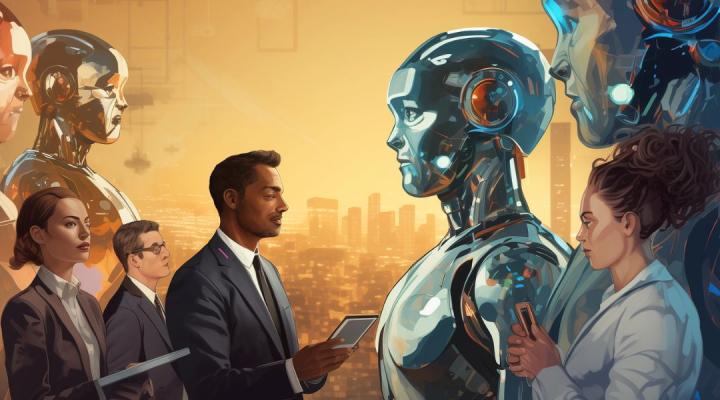The future of recruitment

The enforced remote working triggered by widespread lockdowns in response to Covid-19 has opened the door to other changes in work and employment. With the platform economy unlocking the global talent market and artificial intelligence increasingly being used to match people with jobs, a panel hosted by Eero Vaara, Professor in Organisations and Impact, discussed how recruitment is likely to evolve in the future.
Host: Eero Vaara, Professor in Organisations and Impact, Saïd Business School
Moderator: Gretta Corporaal, Research Fellow and British Academy Postdoctoral Fellow, Saïd Business School, Principal investigator of the Oxford iWork Project
Panellists:
- Paul Estes, best selling author of the newly released book Gig Mindset, and leading industry expert in the open talent economy
- John Healy, Vice President and Managing Director at Office of the Future of Work, Kelly Services
- Adam Ozimek, Chief Economist at Upwork
- Michael Kearns, CEO at Virtasant
- Janine Leger, On-demand Talent Offering Lead at Deloitte Pixel
The gig economy has expanded beyond Uber and Deliveroo to include what Gretta Corporaal called ‘online labour platforms’ that allow companies to find specialised experts and professional-level freelancers. And as companies are now much more open to remote work than they were even six months ago, the ‘portfolio career’, long talked about, is becoming a reality for many.
For Adam Osimek of Upwork, it is the global nature of these platforms that is particularly important, because ‘it means that businesses are no longer constrained to their local labour market.’ This ‘gives workers the freedom to be more flexible and not be forced into the most expensive, crowded cities,’ agreed Michael Kearns, ‘and it gives employers the flexibility to find the best person wherever they are.’ It also makes increasing diversity much easier; as Paul Estes said: ‘If you’re an executive and you’re not bringing diversity and reaching out to the best talent wherever it may be, you’re neglecting your responsibility to your shareholders and to society overall.’
There are important caveats, though. The algorithms that match experts to jobs are necessarily limited by the information available, and may identify people who are suitably qualified but cannot predict ‘fit’. And there have already been examples of algorithms that have absorbed biases – for example, against women – with the data they have been learning from. Key points made by the panellists included:
- Organisations should tread carefully with AI: Machine learning is a good tool for providing information to make decisions, but employers should not become too dependent on it. There is a difference between match (skills and capabilities) and fit (is this the right team for me?).
- Individuals have to work on their personal branding: If traditional resumes and job advertisements are on the way out, individuals have to find other ways of proactively seeking work and demonstrating fit with an organisation or team.
- The system as a whole will need to adapt: Flexibility, adaptability, and remote working have benefits for both organisations and individuals, but the system is currently still geared towards traditional, local employment. What is the future for traditional in-work benefits, pensions, and taxation?




